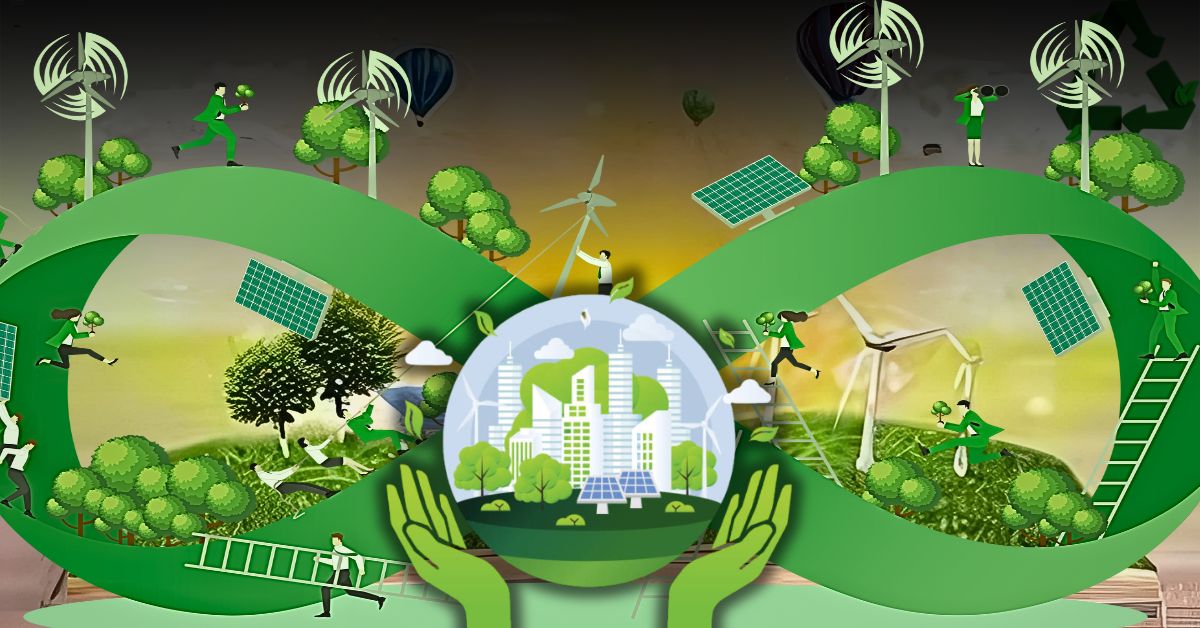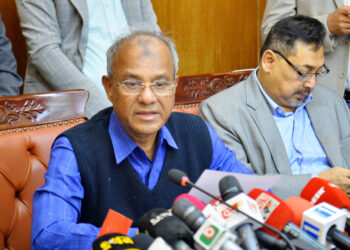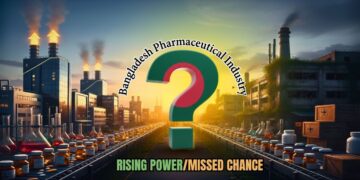Paving the Path to a Greener Future
We are all familiar with the issue of climate change, and just like that, our activities are closely linked to the changing climate. Everything is connected, but today we will discuss something that is extremely important for our environment sustainable and eco-friendly business.
In the fast-paced world of business where profits often drive decisions there is a growing realization that sustainable business practices are not just a trend they are essential for the future of our planet and the well-being of future generations. Every year we witness the devastating effects of climate change pollution and environmental degradation. The question isn’t whether businesses should adopt sustainable practices but rather how quickly can we make these practices the norm?
At the heart of this transformation lies the idea of a green economy one where economic growth is decoupled from environmental harm. Imagine a world where businesses don’t just profit but thrive by caring for the environment creating a lasting positive impact on society. This isn’t just a dream it’s the future we can create together through sustainable business practices.
How Eco-Friendly industry are Building a Better Tomorrow for People, Planet and Prosperity
Around the world more and more companies are stepping up. They are realizing that sustainability is not just a choice it is a necessity. Giants like Unilever and Tesla are redefining what success looks like. Instead of simply chasing revenue they are building responsible ecosystems where people and the planet matter just as much as profits.
Unilever is investing in ethical sourcing and recyclable packaging. Tesla is pushing the world towards clean mobility. Patagonia is creating waves by encouraging customers to buy less and repair more. These companies prove that sustainability can coexist with profitability.
But this wave of change is not limited to big corporations. Small and medium-sized businesses are also embracing the mindset. From local organic farms to eco-conscious fashion startups there is a surge of innovation from people who want to make a difference.
Sustainable Business is About People Too
We often associate sustainability with the environment. But it is just as much about people. The foundation of any sustainable business is how it treats its workers customers and communities. A business that ignores worker rights or contributes to social injustice can never truly call itself sustainable.
That is why social sustainability is just as vital. Fair wages safe working environments equal opportunities and community investments are signs of a business that values human dignity. Companies that put people first tend to have better reputations and more loyal customers.
Take for example Grameen Shakti in Bangladesh. This organization has brought solar energy to rural villages while creating jobs for thousands of women. It proves that sustainable models do not need to come from outside. They can grow from within our communities rooted in compassion and practical impact.
Why We Should Build Green and Eco-Friendly Businesses
-
Protects the Environment
-
Reduces pollution, deforestation, and resource depletion.
-
Helps combat climate change by lowering greenhouse gas emissions.
-
-
Ensures Long-Term Profitability
-
Eco-friendly businesses are more resilient in the face of environmental and economic crises.
-
Sustainable operations often reduce costs (like energy bills, waste disposal).
-
-
Meets Growing Consumer Demand
-
Today’s consumers prefer eco-conscious brands.
-
Sustainability builds customer trust and brand loyalty.
-
-
Supports Public Health
-
Reducing pollution and waste leads to cleaner air, water, and healthier communities.
-
-
Aligns with Government Policies
-
Many countries, including Bangladesh, are creating incentives for green businesses.
-
Regulatory frameworks are shifting toward sustainability.
-
-
Attracts Investment and Funding
-
Investors are increasingly funding companies with strong environmental, social, and governance (ESG) practices.
-
Access to green loans and international grants becomes easier.
-
-
Creates Jobs and Empowers Communities
-
Green sectors like renewable energy, sustainable farming, and recycling generate employment.
-
Empowers rural and underserved communities, especially women and youth.
-
-
Prepares for a Zero-Carbon Future
-
Transitioning now helps businesses avoid future risks when stricter climate laws arrive.
-
Contributes to global zero carbon emission goals.
-
-
Encourages Innovation
-
Drives the creation of new products, technologies, and processes.
-
Makes businesses more competitive in the long run.
-
-
Builds a Better Legacy
-
It’s about more than profit. It’s about leaving a healthier planet for future generations.
-
A green business reflects ethical values and human responsibility.
Bangladesh’s Journey Toward a Green Economy
Bangladesh is a green island on the face of the earth. Bangladesh is one of the most climate vulnerable country. Rising sea levels erratic weather and water scarcity are already affecting millions. But in the face of this challenge there is also resilience. There is innovation. And most importantly there is hope.
The government has launched a Green Growth Strategy aimed at aligning economic development with environmental preservation. This includes investments in renewable energy climate-resilient infrastructure and sustainable agriculture.
Bangladesh Garment Manufacturers and Exporters Association BGMEA has also adopted a green agenda. Many garments factories are now certified as eco-friendly using less water generating less waste and relying on solar power. These changes are helping the industry stay competitive while caring for the planet.
The Solar Home Systems SHS initiative has helped millions of homes in remote areas access electricity without harming the environment. Bangladesh is now a global leader in solar home solutions. Dutch-Bangla Bank is offering green loans to encourage businesses to adopt energy-efficient technologies. Financial institutions are recognizing that green investment is not risky it is the future.
Bangladesh has also committed to achieving zero carbon emissions in line with the Paris Agreement. Transitioning to renewable energy sources such as solar wind and hydro power is at the center of this commitment. New national policies are promoting low-emission technologies energy efficiency and sustainable transport systems across the country.
Read More: Bangladesh-NASA Aligned: Young Visionaries See Space as the New Frontier for Innovation
There are many businesses that are now working with the green economy.
1. Grameen Shakti
-
Sector: Renewable Energy
-
Contribution: Solar energy projects in rural areas, empowering women as technicians.
2. SOLshare
-
Sector: Energy Technology
-
Contribution: Solar electricity trading through peer-to-peer solar microgrids, providing electricity access in off-grid areas.
3. DBL Group
-
Sector: Garments and Textiles
-
Contribution: Eco-friendly, energy-efficient garment manufacturing, with LEED-certified green factories and sustainable practices.
4. EcoVia
-
Sector: Waste Management and Construction
-
Contribution: Converts plastic waste into sustainable building materials like bricks and pavers.
5. Rahimafrooz Renewable Energy Ltd.
-
Sector: Solar and Renewable Energy
-
Contribution: Solar Home Systems, solar-powered irrigation systems, and solar street lighting.
6. BD Recycle
-
Sector: Recycling and Waste Management
-
Contribution: Focuses on collecting and processing industrial plastic waste to reduce environmental impact.
7. BRAC Social Enterprises
-
Sector: Social Enterprises (Multiple sectors)
-
Contribution: Operates businesses with an emphasis on social and environmental sustainability, such as eco-friendly sanitation, dairy farming, and education programs.
8. Deshbondhu Group (Deshbondhu Textile Mills Ltd.)
-
Sector: Garments
-
Contribution: Implements sustainable manufacturing processes and green production methods in the textile sector.
9. Daffodil Computers Limited
-
Sector: Information Technology and Green Computing
-
Contribution: Focus on eco-friendly IT hardware, reducing carbon footprint through green computing practices.
10. Akij Food & Beverage Ltd. (Green Initiatives Division)
-
Sector: Food and Beverage
-
Contribution: Uses biodegradable packaging and green supply chain practices to reduce environmental impact.
Why the Green Economy Matters Now More Than Ever
The green economy is more than just policies. It is about values. It challenges the old mindset that economic growth must harm the environment. It proposes a new reality where jobs are created through innovation not exploitation. A green economy supports biodiversity. It reduces our carbon footprint. It saves lives by reducing air and water pollution. And it gives our children a better world.
It also makes business sense. According to the World Economic Forum businesses that integrate sustainability into their core strategies tend to outperform their peers. They are better at risk management more agile in responding to market changes and more attractive to investors. Millennial and Gen Z consumers are also leading the change. They want transparency. They support businesses that align with their values. For them sustainability is not a bonus it is expected.
The Future of Sustainable Business in Bangladesh
To sustain momentum Bangladesh must invest in education research and green technology. Schools and universities should introduce sustainability into their curricula. Young entrepreneurs should be encouraged to build businesses that solve environmental problems.
Bangladesh can become a hub for eco-friendly startups. The country has a large youth population hungry for innovation. With the right support they can launch businesses in clean energy circular fashion green logistics and ethical farming.
Local governments must enforce environmental regulations more strictly. Plastic bans emission controls and waste recycling must become standard practices. The media and influencer can also play a huge role. Public awareness campaigns can make people care. When people care businesses follow.
Real Life Stories of sustainable business
In the village of Kurigram a young woman named Aklima Begum began working with a social enterprise that trains women to install solar panels. With her income she supports her parents and helps others get clean energy. Aklima is not just earning she is empowering. She is part of the green revolution.
In Dhaka EcoVia is turning used plastics into bricks and pavers. Their goal is to reduce landfill waste while providing affordable building materials. Their factory employs local workers most of whom had no formal education. Their business is sustainable in every way.
In Chattogram farmers are adopting hydroponic farming. Using less water and no soil they are growing vegetables in rooftop greenhouses. This method is not only good for the environment it is also producing higher incomes.
These stories show that sustainable business is not a theory. It is changing lives.
Conclusion
To move towards a greener future, we must shift from using harmful fossil fuels to clean and renewable energy sources. Businesses that focus on solar power, wind energy, and hydropower are already paving the way. These are perfect examples of what a sustainable business looks like in action. They reduce pollution, create green jobs, and offer energy solutions that do not harm the planet.
Agriculture also plays a vital role. A sustainable business in farming uses organic methods, avoids toxic chemicals, and protects the soil and water. Whether it is a local farm producing organic vegetables or a brand creating plant-based food, these businesses are helping us eat better and live healthier while reducing our environmental footprint.
Read More: Beijing considers Strategic Investment in Bangladesh
Waste management is another huge area for change. Instead of throwing things away, we can follow the principles of a circular economy. That means repairing, reusing, and recycling whenever possible. Many sustainable businesses today are making clothing from recycled materials or designing products that last longer. These choices help reduce the waste that ends up in landfills or the ocean.
In cities, sustainable business ideas are transforming how we build and move. Green construction companies are designing buildings that save energy and use eco-friendly materials. Transportation companies are introducing electric cars, ride-sharing services, and public transport options that cut down emissions. All of these businesses are helping create cleaner, smarter, and more livable cities.
Education also matters. Sustainable business is not just about products and profits. It is about values, awareness, and long-term thinking. Some startups and organizations are now focused entirely on teaching people how to live more sustainably. Through workshops, mobile apps, and online resources, they are spreading knowledge that empowers communities to make better decisions.
Governments play a big part in this journey. By offering support and financial incentives, they can encourage entrepreneurs to build more sustainable businesses. When policies support eco-friendly innovation, entire industries can change for the better. It also helps when countries work together, sharing technology and green strategies on a global level.
Business development in a green economy is directly linked to our quality of life. When companies choose sustainable paths for sustainable business they create jobs that are safe and dignified. They contribute to a healthier society. They support education gender equity and community development. And in return they earn public trust customer loyalty and long-term success.
In Bangladesh, the sustainable business movement is growing. Several garment factories are going green by using solar panels and recycling their water. Local companies are producing organic skincare, biodegradable packaging, and even sustainable home products. Young entrepreneurs are developing mobile apps that fight food waste or promote eco-friendly commuting. These examples show that sustainable business is not a far-off concept. It is happening right here, right now.
Whether it is a small handmade soap business using natural ingredients or a tech company designing solar-powered appliances, every sustainable business has the power to shape a better world. This is not just about going green. It is about creating a future where businesses are responsible, people are empowered, and nature is respected.
The future of the economy is not just fast and big. It is thoughtful, balanced, and sustainable. Every time we support a sustainable business, we are casting a vote for the kind of world we want to live in. And if more businesses embrace this model, the planet will be greener, the air will be cleaner and communities will be stronger for generations to come.
Sources
- Nielsen Report on Consumer Sustainability Trends: https://www.nielsen.com/us/en/insights/article/2021/consumers-are-willing-to-pay-more-for-sustainability/
- Unilever Sustainability Plan: https://www.unilever.com.bd/
- Tesla Environmental Impact: https://www.tesla.com/
- Grameen Shakti Case Study: https://www.gshakti.org/
- Bangladesh Green Growth Strategy: https://moef.gov.bd/
- BGMEA Green Initiatives: https://www.bgmea.com.bd/page/BGMEA_pledges_to_join_Green_Button_initiative
- World Economic Forum Green Economy Insights:https://www.weforum.org/
- Bangladesh Solar Home Systems Program: https://www.worldbank.org/ext/en/home
- EcoVia Bangladesh Startups: https://www.startupbangladesh.vc/
- Dutch-Bangla Bank Green Loans: https://www.dutchbanglabank.com/SustainableFinance/GreenBanking.pdf
Share via:


















